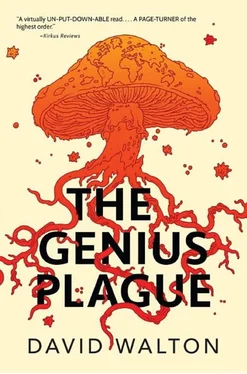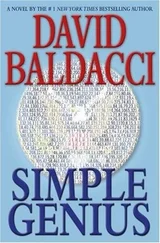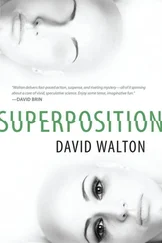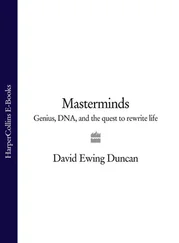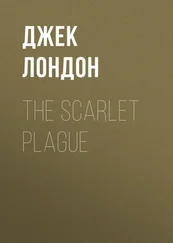David Walton
THE GENIUS PLAGUE
For Ruth
WIKYS HBFFV RDHFF BUUYE PLVKR HWPQC MVSHB
Life did not take over the globe by combat, but by networking.
—Lynn Margulis, symbiotic evolutionist
In the Amazon rainforest, more kinds of plants and animals thrive than in the rest of the world combined. A single square kilometer can host over a million different species, each relying on its relationship with the others to survive. But the Amazon covers an area nearly the size of the contiguous United States, and much of it is still unexplored.
A single creature dominates this ecosystem, a creature neither plant nor animal. It is new-grown, and yet it is old. Extending across thousands of acres of rainforest, it stretches through the soil, wrapping around the roots of trees. It has no central organ by which it can be killed. It branches and divides, its millions of microscopic tendrils transmitting information about moisture, nutrients, and genetic diversity through the network of its body. It exudes enzymes in response to this information, culling and shaping. Changing the rainforest to meet its needs.
It grows rapidly, yet it is not satisfied. Its fruiting bodies swell and burst, ejecting spores into the wind. The spores find the stalks of plants, are inhaled into the lungs of animals. There they implant and grow, sending filaments through soft flesh. They sift, taste, adapt, and ultimately, control. The animals continue on their way, unaware of the thing inside them, but their behaviors are subtly influenced in ways advantageous to the creature. It grows in reach and strength.
Eventually, toward the edge of the great forest, the creature encounters something new, a species more sophisticated than any it has yet encountered. A potential threat. But also an opportunity.
Paul Johns hadn’t seen another human being in six days.
He emerged from the Amazon rainforest, tired and sore, but exhilarated, the sudden brightness bringing a smile to his face. The river sparkled, a vast body of water several kilometers across, even this far from its mouth.
Ahead stood a riverboat station, little more than a few rotting benches and a sign propped against an ancient wooden dock. The sign listed the boat pickup schedule in Portuguese, Spanish, and English, the words faded and water stained. A dozen or more tourists sat on the benches or milled around nearby, waiting for the boat. Seeing them felt like spotting a rare animal in the brush. Paul’s first instinct was to approach quietly, lest he startle them away.
He had taken at least two wrong turnings before finally finding this path, adding several kilometers to what had already been a long hike. His pack felt like a boulder on his back, his muscles ached, and the skin along his shoulders felt rubbed raw.
The pack was heavier than when he’d first come to the Amazon. Then, he’d been weighed down with freeze-dried food packets, energy bars, a water purifier, his sleeping bag, and hundreds of sample containers. The weight eliminated by eating the food, however, was more than taken up with the fungi samples he’d collected, many of them species never before cataloged or studied. He had even dumped his waterproof blanket and some extra clothing to make room for as many samples as he could carry.
He approached the gaggle of tourists. These were a hardier breed than those you would find at Disney World or the Eiffel Tower, mostly young singles searching for adventure far from home. The shorter, more accessible tours started from Santarém, closer to the coast and civilization. The longer tours made it down as far as Manaus to see the Meeting of the Waters, where the Rio Negro emptied into the Amazon in great swirling spirals of silt. But very few tourists ventured this far past Manaus, and those who did tended to be serious hikers and campers, looking to get beyond the veneer of wilderness and experience the reality.
Judging from their bedrolls, this group had probably been dropped off the day before and spent a night out here, pitting their bravery against the darkness. They might not have slept much, but they talked animatedly, with the charged energy of people who had stared danger in the face and come out the other side.
Paul joined them, knowing that he looked the part. He was young and fitted out with the latest gear, though his beard was perhaps a little longer and his pack larger than the others. He doubted any of them had twenty pounds of mushrooms on their backs. He eased the pack to the ground and stretched luxuriously. This was his third scientific foray into the Amazon, and it had been by far the most productive.
“Hey, where did you come from?” a voice said. He turned to see an attractive young woman studying his face with a half-smile on her own. She was blond and fit, with a restless energy that kept her bouncing on the balls of her feet, like a runner keeping limber before the start of a race. “Don’t tell me you’ve been here all along and we haven’t met.”
He stuck out his hand. “I’m Paul.”
She took it and grinned. “Maisie.”
“How long have you been waiting for the boat?” he asked.
“An hour,” she said. “Seriously, though, you just appeared out of nowhere. Where did you come from? Were you camping on your own?”
“I’ve been moving around. Collecting samples for my research,” he said, giving his pack a kick.
“What are you, some kind of scientist?”
“A mycologist. I study fungi.”
“Well, that must be exciting,” she said, with a laugh that was both pleasant and meant she didn’t think it sounded exciting at all.
“It can be,” he said. “There are so many species out here. People are always finding new kinds with amazing properties. A few years ago, somebody came back with a mushroom that can grow on oil spills and chemical dumps, literally soak up the waste and turn it into a thriving ecology.”
That got her interested, and Paul thought she was sincere, not just humoring him. Her questions were insightful, and he found himself talking freely. It would be good to have somebody to help pass the monotony of the ride home. Riverboat schedules on the Amazon were notoriously variable, and Paul knew the boat’s planned arrival time was little more than a vague concept. They might wait an hour or two before it showed up, and then the trip back to Manaus would take a good six hours after that.
Maisie struck Paul as the bored type, a rich girl who had never had to work in her life, and who had turned to extreme fitness and activism as a way to give herself purpose. She would try anything and apparently had, from fried piranha to base jumping, and never turned down a dare.
What Paul liked best about her was that she seemed to understand these things about herself and accept them. She could tell you that her fearlessness gave her a sense of power over her life, and that the fund drives she ran for poor inner-city kids were at least partly driven by a sense of guilt about her privileged lifestyle. She thought the fact that her boyfriends never lasted very long was due to an expectation of betrayal from men that she had learned from her father.
“Ever consider a career in psychology?” Paul asked her.
She laughed, a musical outburst that threw her head back and showed off her slim throat. “I’d sooner be a mycologist,” she said.
“Not everyone can be so lucky.”
The rainforest towered on both sides of the river, giant trees choked with vines. Humidity rose thickly from the water, and thousands of insects darted and skated along the surface. They could hear the screech of distant monkeys and the sharp cries of birds. Sweat streaked Paul’s face and clothing, but despite the heat and insects he was sorry to be leaving.
Читать дальше
